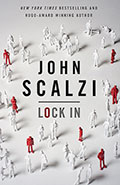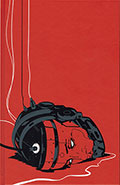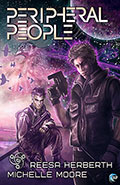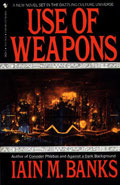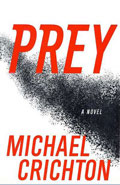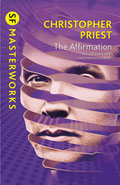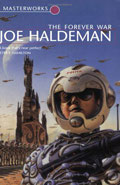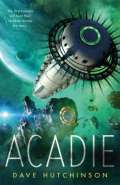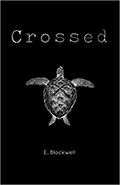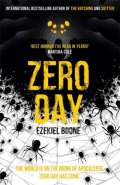The Adjacent
By Christopher Priest
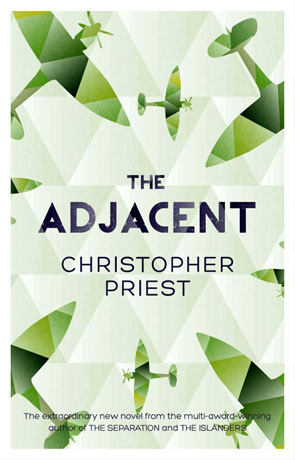
- The Adjacent
-
Author: Christopher Priest
-
Publisher: Gollancz
- ISBN: 9780575105362
- Published: June 2013
- Pages: 432
- Format reviewed: Hardback
- Review date: 26/06/2013
- Language: English
- Age Range: N/A
Christopher Priest is without a doubt one of the finest writers alive today. Rather than compromise his stories for the sake of easy understanding Priest writes undiluted and it's up to the reader to pay attention; to digest and to consider what the story really means, or at the very least what it means for them. That's not to say his books aren't easy to read, they are.
It's refreshing that he doesn't map out everything or sugar coat his work and to be honest if 90% of authors tried this it probably wouldn't work, but for Priest it does - mainly due to his linguistic skill and gifted intellect. I've said before that in many ways for me Priest seems like a British version of Philip K Dick and there is that commonality of unadulterated prose and the use of everyday, down-to-earth characters but it's more than that. Both authors ask big questions, subtly told rather than shouted out and largely left to the reader to decide what's going on rather than spelled out to them and forcing them down rigid paths. The stories are recurrently non-linear in structure, or often just a glimpse at a bigger picture without finite beginning or end.
There are of course many differences, Priest is no-where near as prolific, only seeming to write when he really has a story to tell; not when he needs another pay-check (PKD often HAD to write frequently to keep a roof over his head). Their voice and literary style is markedly different too; Priest has a command of language that is quite enviable and the ability to entertain the reader even when they don't have the slightest idea what's actually going on (more of that later). Anyway the point I'm trying to make is that Priest is one hell of a writer, very much a writers writer and one of the outstanding authors within the literary community. For me "The Adjacent" is the pinnacle of his achievements.
The story begins when freelance photographer Tibor Tarent is recalled from Anatolia to an alternative, near future Islamic Republic Great Britain (IRGB) after his wife Melanie is killed, supposedly by insurgent militia. The actual method of her death (or perhaps disappearance) is unexplained - a bright pinpoint of light in the sky followed by a perfectly triangular patch of scorched earth where she had previously stood with no remains or any other detritus that could signify a life extinguished. While the scale is vastly different, an attack of the same type made in West London has resulted in the death of hundreds of thousands; the two events are seemingly connected by triangular termination.
This near future is also one where climate change has had a huge impact on the world with devastating storms making much of the Mediterranean uninhabitable and even in IRGB travel is limited to a type of armoured car called a Mesbher. We are then transported back to the past, some time during the first world war and meet stage Magician Tommy Trent travelling to the front line after being asked to assist in a plan to render aeroplanes invisible to the naked eye and thus prevent them being shot to bits. While on the train carrying them toward the trenches he meets none other than HG Wells.
Skip forward to 1943 and the second world war, where a woman pilot tells RAF technician Torrance of her escape from the Nazis, of her lost love (of whom Torrance appears to be a spitting image) and her desperate need to return home.
The novel moves between these three time periods and characters (amongst other people and places) in an almost non-linear fashion; in many ways the book feels like the author has included many of his favourite things such as HG Wells (Priest is a big fan and Vice-President of the H. G. Wells Society), magic and sleight of hand along with World War two and it's wonderful aircraft (Lancaster Bomber and Spitfire being personal favourites). The transition between each period is handled brilliantly, it's a credit to the author that he makes the book so easy to read (if not to fully understand) with an un-flowery, uncluttered, narrative structure and everyday characters that help the readers journey through the authors imagination. It's the use of characters who aren't at the forefront of the action that help to make the novel so special, hearing about the major events as they do rather than witness them first-hand creates a feeling of being a bystander, a small part of something much bigger, left to learn about what's happening rather than just being handed all the pieces.
I loved the depiction of the near-future alt-history Great Britain, a country that has clearly been shook first by the extraordinary weather but also by the devastating attack on London; the fact that the country is under Islamic rule is cleverly understated and still very recognisably "British".
The title says it all really, the Adjacent makes sense in many different ways although it will probably take you most of the novel to really understand this (or even a re-read or two), the author even has the reader feeling a sense of "displacement" in the second part of the book. It is important to understand that to really enjoy this book you need to enjoy the way it makes you feel as much as you enjoy figuring out what's actually going on. There is however a very fine story for those looking, a love story even that crosses time and alternative dimensions.
If you've ever wondered what it would be like to read a novel by someone with 70 years life experience whose talent has improved with each of his thirteen novels (written as Christopher Priest with another three books written under pseudonyms) spanning some forty three years. Or if you've ever wondered what it would be like to read a Campbell, Clark, BSFA and World Fantasy Award winning author who just keeps on improving. Or if you want to read something for the way it makes you feel as much as the way the story unfolds - then The Adjacent is for you, just don't expect it to make a whole heap of sense on the first read.
Written on 26th June 2013 by Ant .
